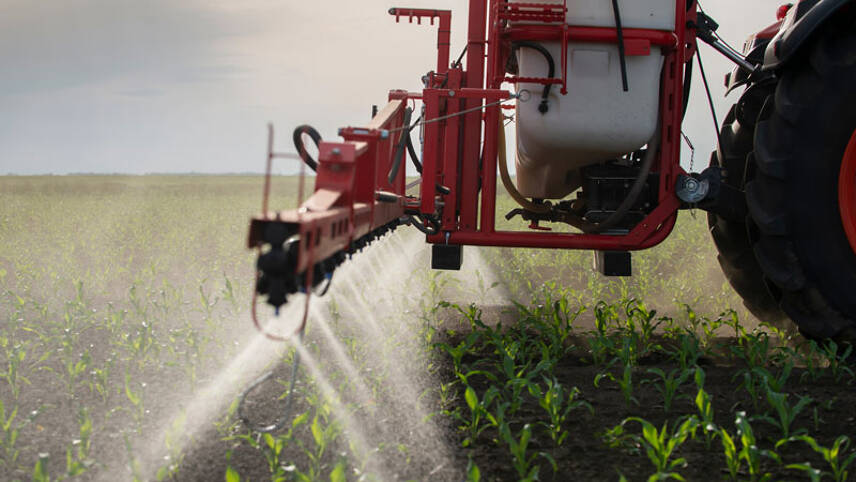Register for free and continue reading
Join our growing army of changemakers and get unlimited access to our premium content

PAN UK and the Pesticide Collaboration, with support from Greenpeace, are this week calling for more robust planning from the UK Government around the reduction of pesticide use in agriculture. The groups claim this is essential if the nation’s 2050 net-zero target is to be delivered, alongside the Conservative Government’s commitment to leave nature in a better state for the next generation.
Their call to action is being made through a new report, which outlines how pesticides are a significant yet often overlooked part of the agriculture sector’s climate impact. The sector accounts for one-third of global annual emissions and is the largest historic driver of nature degradation.
Almost all pesticides manufactured today use fossil-fuel-derived chemicals as their building blocks, the report emphasises. Their manufacturing processes are, more often than not, also powered by some fossil fuels.
The result is products that are high-carbon across their lifecycle. For example, manufacturing one kilo of the world’s most popular weedkiller, glyphosate, produces , more than 31 kilos of CO2e.
Use of these high-carbon pesticides is increasing in the UK when it should be coming down, the report highlights. 16% more glyphosate was used in private agriculture in 2020 than was used in 2016.
The report calls for a science-based target to reduce pesticide use in the UK and a proper roadmap to its delivery. Without this, the report warns, use could rise unchecked.
Greenpeace UK’s chief scientist and policy director Doug Parr said: “Unless we change our approach, the impacts of the climate emergency are expected to lead to an increase in pesticide use, which will create a vicious cycle between chemical dependency and worsening climate breakdown.
“As temperatures rise, the amount of pests increase and crop resilience goes down, requiring ever-larger amounts of pesticides. This rise in pesticide use will cause insects and weeds to develop resistance to herbicides and insecticides in greater numbers”.
The report describes reducing pesticide use as a “win-win” for climate and nature.
On the nature piece, while water companies have received much flack this year for sewage dumping, the UK’s main source of pollution for freshwater and saltwater remains the agricultural sector. Runoff from farms sends chemicals and nutrients from not only pesticides but also wastes and feeds into the water.
There is also a mounting base of evidence that pesticides are bad news for nature on land. Some varieties can linger in soils for years and, once consumed by insects and other organisms, can harm their functions including reproduction. Debate also rages on about the true extent of the negative impact of pesticides on bees and other pollinators.
Government response
edie reached out to the Department for Food, the Environment and Rural Affairs (Defra) for a comment on the new report.
A Defra spokesperson said: “We want to protect both people and the environment from the risks pesticides can pose. That is why strict regulation only permits their sale and use, where scientific assessment shows they will not harm people or pose unacceptable risks to the environment.
“Through our new farming schemes, we are supporting farmers to reduce emissions through sustainable land management approaches, new technology, and innovative practices.”
In 2020, Defra consulted on the first update to the UK’s National Action Plan on the sustainable use of pesticides since it was first launched in 2013.
Publication of the responses was delayed until late 2021 due to Covid-19. The general consensus was that stronger targets could be set to reduce the use of some pesticides post-Brexit and that stronger requirements to protect the health of those who work with pesticides would be welcome.
To date, a full and formal update to the National Action Plan has not yet been provided. It was promised by spring 2022 but, like many other updates from Defra, has been plagued by delays.
Defra is now planning to publish the Plan later this year. It will set out measures to ensure that pesticide use is more targeted.


This problem, having true regard for our environment, and business
interests, will rumble on for ever.
Nature needs a gentler, understanding approach, business desires to maximise profits. A very broad and understanding approach is needed, but very difficult to obtain.
Sorry, but there it is!